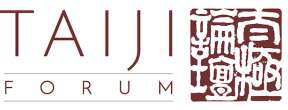
The difficulty for all people interested in Qigong research is that with Qigong being a exercise system aimed at overall health the articles are scattered over different research areas. The question thus is: Where to start?
Research conducted at university institutes is regularly published in respective scientific or professional journals, which differ in scope and importance from country to country.
Especially in medical research the leading publications are – independent of the mother tongue of the researchers themselves – often in English, which is reflected in the titles: “Medical Journals” and “Journals of Medicine” can be found all over the world.
In American countries, especially in the US, there is a strong tradition of Journals published by the universities themselves. These represent a constant possibility for researchers of the university to publish their findings. Additionally, they provide the reader with an overview about the main research areas of the university and its institutions. Alongside them, one can find a range of professional journals published by associations of medical practitioners or medical researchers (Medical Societies).
All these publications are generally reserved for articles and reviews by experts in this field of research. One the one hand, this is an indication for a high standard, i.e. a high level of quality, but on the other hand it also points to a closeness of the circle of possible authors. As a rule, these must meet certain formal preconditions for publication: e.g. the authors must work for designated institutes or universities or they must be either a member of a society or association or get an invitation as an extern to publish there.
Meanwhile, some journals work with the method of peer-review. This method of quality control is increasingly recognized. It consists of the submitted texts being anonymized and then checked and commented by other experts in the field. – The then revised articles are not published until after having received “green light”. Even if this is a lengthy procedure, it is a possibility for quality research to be published, even if the status of the author taken on its own would generally not suffice for regular publication.
Searching online and in public libraries
How to access the sources? An overview of relevant medical journals can be found on wikipedia.
This list can be helpful if one wants to search for articles concerning a specific illness. Because scientific journals – especially the newer issues – are often restricted in access, a visit of a public library might be a good idea. Also some university libraries are open to the public, as they are often active in a network of local libraries. It is always worth a try, as university libraries do often provide access to a big variety of scientific journals from all over the world. All articles – even older ones – are usually accessible online and can be downloaded and/or printed out directly. As a bonus, the members of staff are often happy to help if one is searching for something special.
Older articles dating back a few years can often be accessed for free via the website of the journal itself or its publishing company. If you already know exactly which article you are searching for (name of journal, year, pages), a direct visit of the website in question would be a good start. If you select the journal and enter your numbers (year, pages), you will normally be able to access a pdf version of the article with the original page numbers – which means that if you need to you can cite the article exactly as it is printed in the journal.
A collection of journals which are fully accessible online can be found here: http://www.freemedicaljournals.com

Other possible sources
Searching for specialist articles in medical journals is complicated and lenghty, especially if one simply wants to get an overview on Qigong and healing for a start. – This leads us towards the search for relevant (professional) journals which emerge out of the field of Qigong itself. This field also proves to be a wide one.
In many countries there are journals which are published (and written) by Qigong practitioners themselves – amongst them journals created by practitioners who are also active publishers or journals produced by (professional) Qigong associations for their members. Along these, you can find journals published by publishing companies with the main focus on health and healing, but also self-healing and esotericism which tend to write on the connection of energy and healing, the latter sometimes with, sometimes without close connection to Qigong.
The quality of these journals is very heterogeneous. It can vary immensely between single articles even in the same issue of a journal. The names of the journals (Professional Magazine, Journal for Professional Training, (Independent) Professional Journal, European Journal) do not help to categorize, as these names are effectively created by the publishers due to market considerations.
The individual is thus challenged to develop an inquisitive mind. – You will have to become a bit of a researcher yourself and to critically question the articles you come across on your search. (This also goes for the reading of scientific articles in scientific journals: Assessment of Publications on Qigong and Healing).
Qigong Healing Series
Qigong and healing Qigong, working with the Qi (life energy), is commonly known as furthering overall health. – However, its underlying idea of Yangsheng – nurturing of life force or short: care for life – does not automatically distinguish it from other systems of caring for health, movement methods or other forms of (therapeutic) breathing techniques…
Qigong Scientific Studies Scientific studies about the efficiency of Qigong face a double challenge. For one thing, the cultural background of Qigong leads to a specific view of the human condition, which in part conflicts with the Western view on the human body, which lies at the foundation of “modern” medical research. An additional problem is that scientific standard methods of medical research, which determine today’s Qigong research, are to some extent unsuitable to capture typical aspects of Qigong, due to the Western image of medicine and its rootedness in a distinct research tradition.
Qigong studies – background and significance This part explains how Qigong studies refer to their subject Qigong (What is Qigong?). The most common kind of study is explained and its background and significance is explored…
Qigong and healing part 4 – Qigong research – meta-studies Apart from single test series (randomized controlled trials) Qigong research mainly consists of meta-studies and reviews. This text deals with their function and their typical findings. Contrary to what its name may indicate, meta-studies are not per se “better” studies than trial studies. The method behind meta-studies is to search data bases and …
Qigong and healing part 5 – The landscape of Qigong research The strictly practice-related approach of this kind of Wellness-Qigong research eclipses the theoretical problems; the contradictions mentioned above seem to be solved. – Regrettably, the opposite is true: The evidence produced in such a “practice-led” research cover the scientific dilemma, but do not contribute to its solution. Actually, with this research approach it does not matter at all, if one researches about Qigong or other methods (Yoga, Pilates, Zumba,…). The decision about the focus of the studies is neither related to a certain cognitive interest attached to the health method in question nor to the experimental design as such, but it is solely a question of taste or fashion…
Assessment of Publications on Qigong and Healing Some key points for the assessment of publications on Qigong and healing: What are possible clues for the assessment of a publication? Is a scientist a Qigong expert? Is a Qigong expert who really gets into the details of the art – i.e. „researches“ as part of his work – a scientist?
Author: Taiji Forum
Images: Taiji Forum

